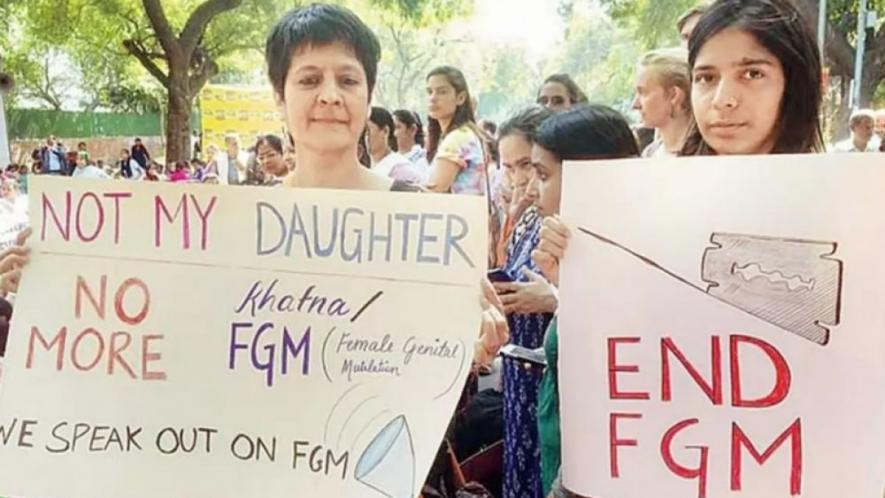'Ban FGM': Rival Syedna Writes to PM

H.H. Syedna Taher Fakhruddin - leader of the Dawoodi Bohra Community writes to PM Modi to ban FGM practice
~Letter also addresses the practice called ‘khafz’ which is carried out in the Dawoodi Bohra community~
Mumbai, 31st January 2023: His Holiness Syedna Taher Fakhruddin Saheb, the head of the Dawoodi Bohra community, has written a letter to the Hon. Prime Minister, Shri Narendra Modi, expressing his strong opposition on female genital mutilation (FGM) urging that it be made illegal in India. As of yet, there is no law in India forbidding FGM. This is in the context of the Prime Minister’s outreach to minorities, especially the Dawoodi Bohra Community to voice their concerns.
In order to put an end to FGM, Syedna Taher Fakhruddin, in the letter addressed to Prime Minister Narendra Modi said, “In particular, the Dawoodi Bohra community has been in the limelight recently because of the issue of female genital mutilation (FGM). I would like to take this opportunity to reiterate my position and unequivocally condemn the practice of FGM. I also call on the government to introduce legislation to ban the practice and make FGM illegal.”
In addition to the concern on FGM, Syedna Taher Fakhruddin said, “Additionally, I would like to bring to your attention a separate practice called ‘khafz’ which is different from FGM, and has been practiced in our faith. This practice has also drawn considerable attention from activists.”
The practice of khafz is often misunderstood and erroneously equated with female genital mutilation. The khafz procedure is analogous to Clitoral De-Hooding (CDH), which is a medically sanctioned and fairly common procedure in the West. It is not the removal of part of the clitoris as inaccurately reported by some media outlets. The purpose of this procedure is to improve a woman’s sexual health and it should be performed only by qualified surgeons in a clinical environment. ((https://my.clevelandclinic.org/health/treatments/22259-clitoral-hood-reduction)).
In a recent interview, His Holiness said that “the intent of all jurisprudential laws in our faith is the betterment of the lives of individuals and society as a whole. And since khafz was being practiced in a clandestine manner which resulted in trauma for young girls this was contrary to the intent. And so for the protection of young girls in the community and to clarify the intent of the religious practice I issued a clear statement in 2016. This statement is published on our website: https://fatemi.app/syedna-statement-on-khafz. ”
His Holiness added that “khafz should not be done in a clandestine manner and in unhygienic environments as it can lead to trauma and serious irreversible medical complications. It should be a woman’s individual decision whether to do this medically, legally and religiously sanctioned procedure once she reaches adulthood. In contrast, Female Genital Mutilation (FGM) is a horrific and un-Islamic practice and we condemn it categorically.”
Syedna Taher Fakhruddin's letter to Prime Minister Narendra Modi advocates legislation banning FGM and is in the spirit of addressing critical issues that concern women in the community and in society at large. In an interview Syedna recently said that “As a leader of my community, it is my duty to shed light on the religious principle when cultural customs overcast the original intent, especially when there is trauma caused to girls in my community.” His Holiness will continue to address other such issues in the near future, including the practice of iddat in the Dawoodi Bohra Community (the practice of a widow secluding herself after her husband’s demise. In a time of grief, it is certainly not the intention of religion to cause further alienation and grief. Some of the cultural customs that have overshadowed the ‘iddat’ practice in the community are again contrary to the principle of religion and its intent).
Not just in India, but around the world, FGM has been widely protested. As a serious violation of human rights, FGM has even been condemned by the World Health Organisations (WHO). To draw the world’s attention on the issue and condemn the practice, the United Nations has designated February 6 as International Day for Zero Tolerance to Female Genital Mutilation (FGM). With the 6th of February soon approaching, Syedna’s letter advocating legislation banning FGM is well timed. While there is still no law against the practice of FGM in India, it is prohibited in over 30 other countries, including the United States of America, the United Kingdom, and 27 African countries.
Get the latest reports & analysis with people's perspective on Protests, movements & deep analytical videos, discussions of the current affairs in your Telegram app. Subscribe to NewsClick's Telegram channel & get Real-Time updates on stories, as they get published on our website.























